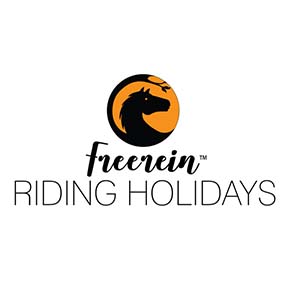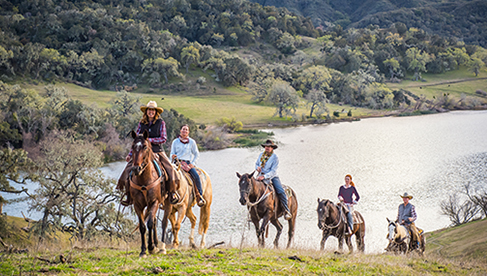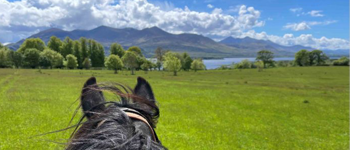Connecticut’s “Vicious Horses”- From CT Horse Council
Connecticut Horse Council President Frederick J. Mastele follows up on the recent story, Connecticut court to decide whether horses are 'vicious', that outraged so many and outlines what you can do to help.
by: Frederick J. Mastele, Acting President of the Connecticut Horse Council
Recently many of you may have been following the Connecticut Supreme Court proceedings regarding horses being portrayed as “vicious animals”. This has led to Connecticut horse owners having several questions and concerns about what happened, and asking what can be done about it. In addition, some Connecticut horse owners may not be aware of what has occurred and would like more information. As briefly as possible, this article will attempt to describe the events leading up to the Supreme Court hearing and what we as an equine community can now do.
For most of you it may appear this is a case that has only recently come to light, however, it began in 2006. As court records indicate, in May of 2006 after purchasing plants at a store in Milford, CT, a young boy and his father went to visit horses roaming in a paddock at a boarding facility located behind the plant store (both the store and stable are owned by the Defendant). While petting one of the horses the young boy was bitten on the cheek by one of the horses, removing a large portion of the skin.
In May of 2008, the original documents, etc. were filed with the court. However, due to continuances by the Plaintiff, the first hearings appear to have been in 2010 with the court ruling in favor of the defendant, hence no “vicious horses”. The appeal went to the Appellate court in 2010, which heard the case and reversed the decision of the lower court in favor of the Plaintiff, thus “vicious horses”.
The CHC became aware of this case in 2012, when it went to the Supreme Court and then, CHC President, Amy Stegall brought it to our attention at one of the monthly meetings. The CHC Board and members were concerned and weren’t sure what course of action to follow so Amy contacted Doug Dubitsky, an equine lawyer and member of the CHC, for advice. Doug suggested that the Supreme Court be approached to get permission to file a friend of the court brief (Amecus Brief) stating what the impact of declaring horses as “vicious animals” would have on the equine community both legally and economically. However, he said the cost would be significant and the CHC was not in a very good financial position to afford such an undertaking.
Amy reached out to several sources for help and eventually the Connecticut Farm Bureau Association (CFBA), also realizing the negative impact to the equine community, provided the financial assistance needed. In addition, Doug donated unreimbursed expertise, resources and time getting permission to file and then filing the Amecus Brief.
Prior to the hearing the brief was filed with the Supreme Court on behalf of the CFBA and CHC, then on September 24, 2013, the Connecticut Supreme Court heard arguments for both sides. Unfortunately, Doug was not able to argue on behalf of the brief. Now we have to wait for the Supreme Court to render a decision for the case, which may take anywhere from 3 to 6 months, or more. A copy of the brief can be found at the CHC website.
What can be done in the mean time? Letters to the Justices and petitions will not help at this point. I would like to remain optimistic and think the Justices will render a favorable decision, but we need to be prepared for the worst. Doug has informed the CHC that we should be prepared to fight this battle both legislatively and in the courts. Therefore, what I would encourage Connecticut horse owners, breed organizations, riding groups and other concerned groups and individuals to do is support the CHC and CFBA by becoming members to strengthen our membership base. In addition, you can also donate to the equine legal fund established by the CFBA.
Click to find details about the court proceedings. The case is VENDRELLA, ANTHONY Et Al (Plaintiff) v. ASTRIAB FAMILY Et Al (Defendant) and the docket number NNH-CV-5021342-S.
Please understand that if horses are determined to be “vicious animals” they would be uninsurable and any and all uses would be affected. Training and boarding stables, therapeutic riding, horse camps, petting zoos, trail riding, and other horse related uses and activities would be impacted.
Membership information for the CHC can be found on the CHC website or by writing to CHC PO Box 57, Durham, CT 06422. You can also email me for CHC information. The CFBA website is www.cfba.org and the address is 775 Bloomfield Avenue, Windsor, CT 06095-2322. When sending donations to the CFBA, be sure to write equine litigation on the memo line of the check.




